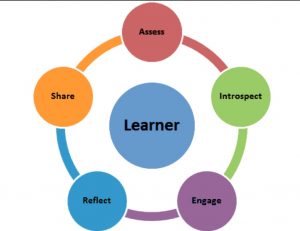Fostering Learner Autonomy in the Language Classroom
By Evelin Suij-Ojeda

We, at the MA TESOL program, do our best to help our students become independent learners and language users. That is why lately, we have been reading and discussing a lot about how to help our students become autonomous learners while also increasing their agency.
What is learner autonomy?
Let us first point out that learner autonomy has nothing to do with letting students do whatever they want, rather it focuses on letting them discover they are responsible for their own learning. In other words, it refers to a learners’ ability to set appropriate learning goals and take responsibility for their own learning process. However, autonomous learners rely on their teachers anyhow; why? Because teachers are the ones in charge of providing and maintaining positive and encouraging learning environments that support the development of autonomy and agency within the language classroom.
Consequently, the whole process of English language learning and teaching (ELL and ELT) will be more fluent and enriching since students will want to take part in every single stage in the class: from deciding what materials to use to analyzing what works best for them in terms of learning strategies and styles.
Let’s look at the diagram and think about all the characteristics a learner should have to be considered “autonomous”

Taking the previous diagram into consideration, I wonder: Do your students have those features? which one is the most predominant one? Do we actually plan our classes so as to drive our students to autonomy?
The old fashioned teacher inside us keeps on asking to take control of everything, but we in the MA TESOL program know this is not the right path to follow! We encourage our students to be the ones managing their own learning process.
How do we foster learner autonomy in our language classrooms?

There are plenty of ideas and strategies to help students be independent learners; below are just a few of them that I find the most practical and useful to foster learner autonomy:
1. Incorporate real life examples into your lesson plans: the more your students notice they can actually apply what they are learning, the more involved they will be.

- Ask students to pick topics for the upcoming class: they will feel they have an important say concerning what happens in the classroom.
- Ask learners to keep a personal blog or written journal reflecting on their learning experiences; this way, they will be able to identify their own weaknesses, strengths as well as find ways to improve.
- Encourage learner involvement in project guidelines and grading rubrics
- Increase students’ intrinsic motivation: by getting to know your students and getting feedback from them in regards of what they like and dislike about learning a new language, can help teachers identify what students find most useful and enjoyable.

- Provide more scaffolding at the beginning, and then decrease scaffolding towards the latter or more advanced stages of learning.
- Make sure you draw on your students’ own language learning experiences: if it doesn’t relate to their prior experiences, then it will be difficult to encourage autonomy.
- Have students create their own goals and assignments for your class.
- In a higher education context, allow learners to customize some of their assessment items to suit their specific professional contexts.
- Encourage students to bring or create resources, materials, etc that relate to the content of the lesson.

The above ideas will certainly help promote experiential learning and offer learners a sense of being able to actively participate in their education.
To conclude, it is important to emphasize that learner autonomy does not mean that the teacher has no input or that learners have total control. The more we teach our students to be in charge of and lead their learning process, the better they will perform. Give your students the possibility to discover the wonders of being in charge of their own learning!






